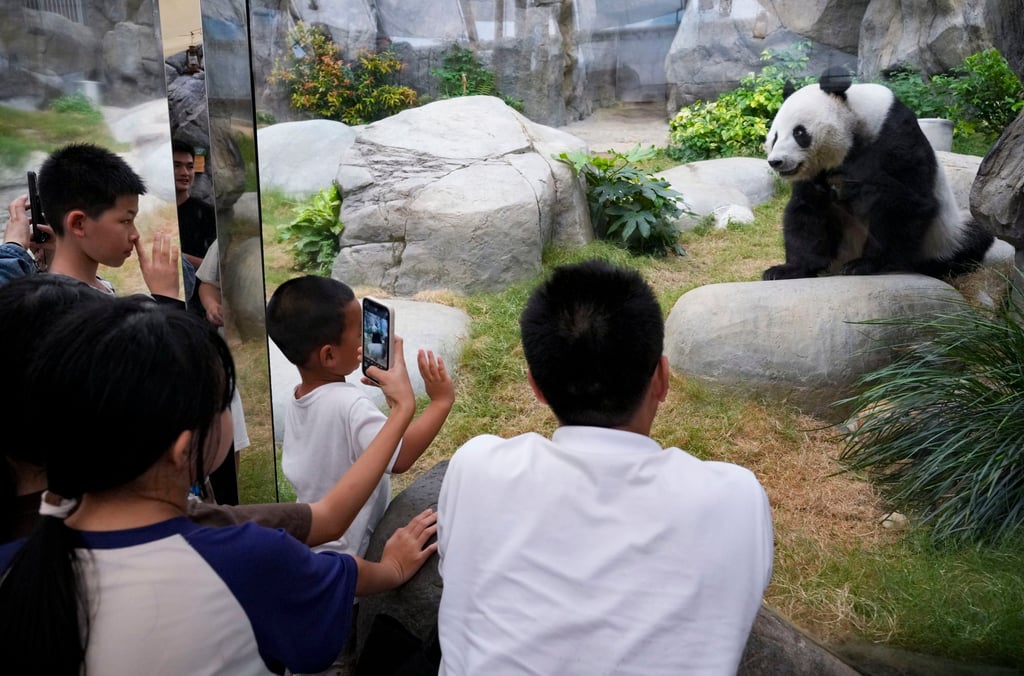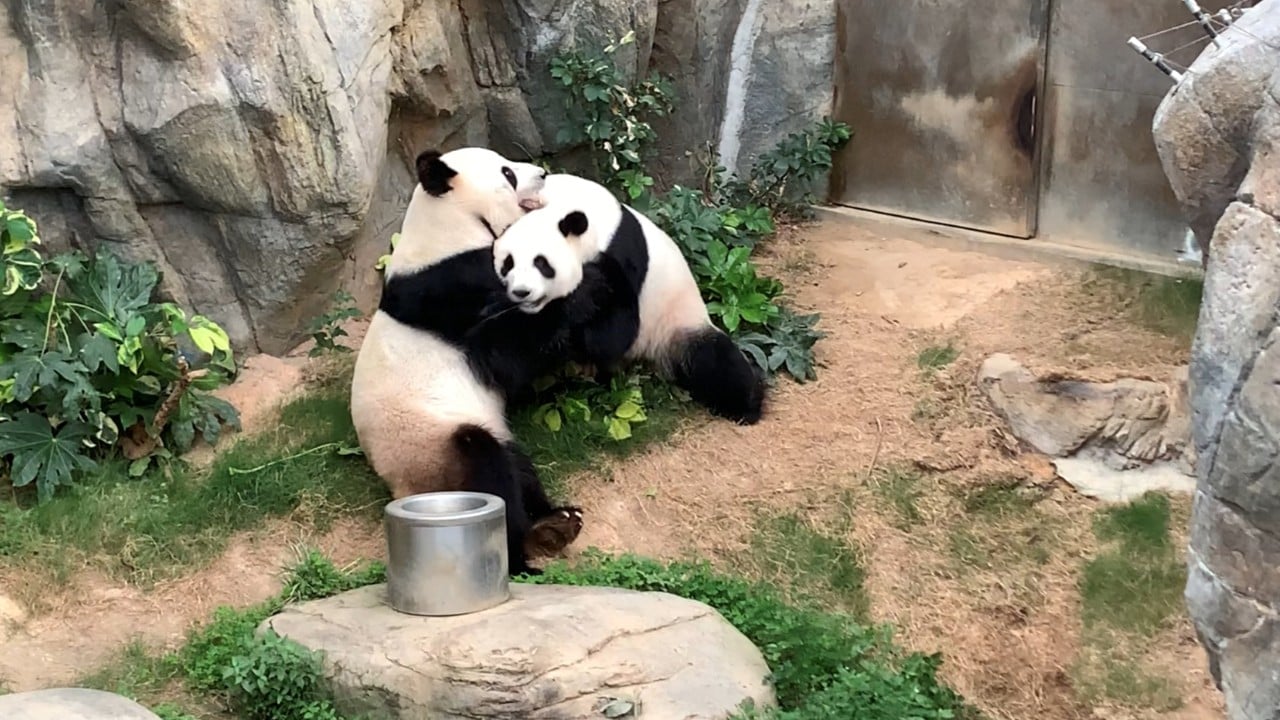A pair of giant pandas gifted to Hong Kong by Beijing are expected to arrive in the city in late September ahead of National Day, although the public will not get to see them during the holiday because of quarantine arrangements.
Two separate sources told the Post on Tuesday that the pandas were tentatively scheduled to arrive around September 26, pending finalisation, and would travel via Cathay Pacific Airways’ cargo services.
One source said the pandas, and their veterinary team, would be subject to 30 days of quarantine ahead of their departure from Sichuan province.
They will go through another round of about 30 days’ quarantine once they arrive in Hong Kong, and will also be allowed to rest and adapt to their new home at Ocean Park in Southern district.
“The goal is to bring the pandas into Hong Kong by the end of September,” one of the sources said.
Multiple sources confirmed it would be “impossible” for the pandas to meet the public by National Day on October 1.
Chief Executive John Lee Ka-chiu, along with a delegation that included tourism chief Kevin Yeung Yun-hung and Ocean Park chairman Paulo Pong Kin-yee, visited Sichuan in July to coordinate arrangements for the pandas’ arrival.
Lee confirmed during his trip that a pair of young adult pandas aged between five and eight years had been arranged for Hong Kong.

He also said the government hoped the bears, a gift from Beijing to mark the 27th anniversary of Hong Kong’s return to Chinese rule, could arrive by National Day on October 1.
Lee had described the two bears as “fit for reproduction” with the hope that they could eventually produce a city-born cub – a goal that has eluded Hong Kong for a quarter-century.
Giant pandas reach adulthood at five years and sexual maturity at around 7½, but are famously sex-shy.
Ying Ying and Le Le, the second pair of pandas given to Hong Kong in 2007, failed to conceive any babies despite several rounds of natural mating since 2011 and an artificial insemination procedure in 2023.
The first pair, male An An and female Jia Jia who arrived in 1999, died without reproducing.


